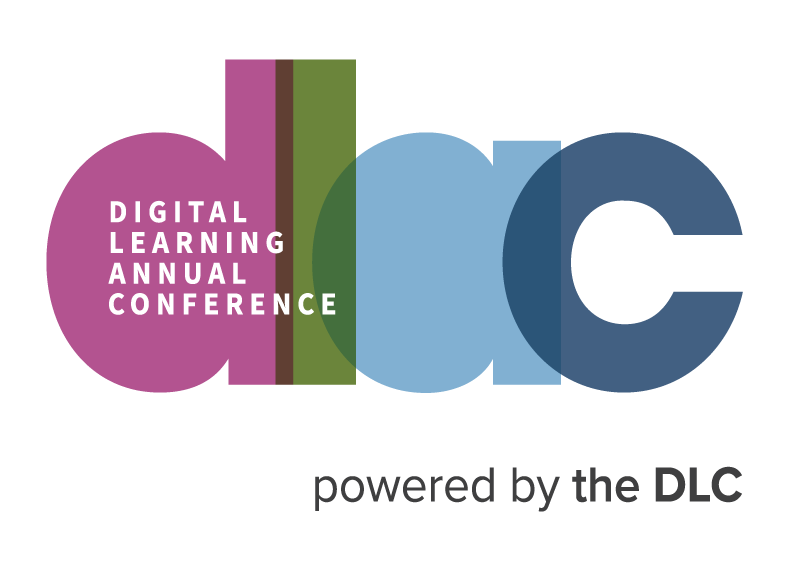DLAC Sessions:
DLAC includes a variety of session types—more than many conferences! Knowing what to expect will help you get the most out of the conference.
Breakout sessions are scheduled for 75-minute blocks. The concurrent sessions, however, are quite different from each other.
Contributed Talk (20 minutes/1 segment) – These talks are made up of 15 minutes of presentation and 5 minutes of questions and discussion. The Program Committee will organize these short talks together under broad themes.
Explore and Engage (45 minutes/2 segments) – This session is intended for a presenter to share information about a topic for 20 minutes (similar to a Contributed Talk) and then lead a discussion about the topic directly following the presentation for the next 20 minute segment (similar to a Table Talk).
Organized Session of Talks (75 minutes/3 segments) - The presenter proposes the theme for all three speakers. These sessions are considered a group of three Contributed Talks. They are based on 20-minute segments and allow conference attendees to move between sessions throughout the day. A session moderator may choose to have two speakers plus a 20-minute discussion for the third segment.
Table Talks (35 minutes/1.5 segments) – Table talks are facilitated small group (10-15 people) discussions of 35 minutes. Discussion topics are chosen by the moderator of the session and can focus on any aspect of digital learning. The moderator does not need to be an expert on the topic, but should have questions planned prior to the Table Talk to guide the conversation. Screens, projectors, and microphones will not be provided for Table Talks.
Book Study (35 minutes/1.5 segments) – Book Studies are facilitated small group (10-15 people) discussions of 35 minutes. Sessions are focused around a book that will be highlighted before the conference so attendees have the opportunity to read the book prior to the session. The book is chosen by the moderator of the session and can focus on any aspect of digital learning. The moderator does not have to be the author of the book but should have questions planned prior to the Book Study to guide the conversation. Screens, projectors, and microphones will not be provided for Book Studies.
PechaKucha (0.5 segments) – This is a very specific type of presentation that is exactly 6 minutes and 40 seconds long, where you must have exactly 20 images in a Powerpoint with slides auto-advancing after 20 seconds. See www.pechakucha.org for more information.
Poster Sessions (90 minutes) – Posters are presented during one of the two early evening receptions in the exhibit hall. We would like you to think of your poster as an “infographic” to stress that the graphics must convey a problem and solution, or research question and findings. Speakers will be available during the 90-minute block to address participants' questions.
Blocks may also be used for the following types of activities, using the entire 75 minutes or a portion of the 75 minutes:
Debate (2 to 3 segments) – This session is intended for a moderator to lead a debate-style discussion on an online, blended, or digital learning topic in which differing opinions exist. Structurally, a debate and a panel discussion may appear similar, but we are encouraging the free exchange of ideas and, as such, debates that feature differing views will be given priority.
Fishbowl (2 to 3 segments) –Fishbowl is a method for facilitating group discussions. In a Fishbowl discussion, there will be four "panelists" at the front of the room (the “fishbowl”). The moderator (person submitting the session) will propose the topic and those on stage will actively discuss the topic. The initial panelists can be selected ahead of time or they can volunteer once they hear the selected topic, this is the moderator's choice. Attendees outside the fishbowl listen carefully to the conversation but are not allowed to actively engage with the panelists unless they go on stage. When they go on stage, they will replace the individual who has been on stage the longest. The topics can change throughout the session with attendees and panelists taking turns being both contributors and listeners in a group discussion.
Panel Discussion (2 to 3 segments) – After short introductory statements on the panel topic, a moderator will lead a discussion with the panelists on the topic, encouraging the attendees to pose questions. Panel discussions must be interactive between panel members and the audience and not a set of individual presentations. The preferred panel discussion provides panelists with a variety of perspectives on a topic from multiple schools/organizations. (The Program Committee can assist in finding other panelists as needed.)
Research Study Data Collection (2 to 3 segments) - Researchers may complete a feedback/data collection session to help complete a research study. This should not be a company/organization trying to collect feedback/ offer a focus group for a new product or service.
Workshops (3 segments) – This session provides an opportunity to explore a topic in depth. It is expected that the workshop will have various interactive components. DLAC is not looking for traditional conference sessions. Please do not select Workshop as a way of getting the time for a traditional conference session. These must be interactive sessions, engaging all participants in activities and discussions to take a deeper experiential dive into a topic.
Please reach out to dlac@evergreenedgroup.com with questions about this session type.
Special Session Types:
Pre-conference Session (2-3 hours) – These sessions will happen the morning of the first day of the conference. Participants will pay an additional fee to attend the sessions and they will only be offered if a specific number of people sign up to attend. They must be interactive and engaging and provide a hands-on or discussion-based experience for the majority of the session. (This session type will only be available during Phase 1 of the call for proposals. If you have an idea for a pre-conference session after Phase 1, please email dlac@evergreenedgroup.com with your idea and supporting details.)
Sponsor Sessions (1 to 3 segments) –Carol Klyver, our Director of Sponsors, will provide the submission code to her main contact of each sponsor. Sponsor sessions will require the code to be entered into the proposal for their pre-assigned sessions.
State/Regional Meet-ups (3 segments within program or outside of program) - DLC State Affiliates who wish to set up an in-person state/regional meet-up during the conference will select this session type. All DLC State Affiliate primary contacts will receive a special submission code from Chris Voelker, DLC Director to input into their proposal.
Community Based Meet-ups (3 segments within program or outside of program) - If you are interested in adding a new community to the DLC membership organization (We currently have community groups focused on: Digital Content, Design & Refine, Elementary, Policy, and Research) or a new state affiliate (you are not a current DLC State Affiliate member), please submit your idea as this session type. We will contact you after the conference to determine interest in continuing the conversations.
Community-Based Set of Sessions (4 sessions) - The goal of these sessions is to propose a specific track of multiple sessions that build upon one another that attendees would join throughout DLAC. A track of sessions building upon each other, including:
A pre-recorded Contributed Talk introducing the topic.
A Panel Discussion providing multiple perspectives.
A Workshop for a deeper, hands-on dive.
A Table Talk for higher-level engagement with the community.
One to two people lead and engage the participants during DLAC, with potential continued engagement through DLC membership. **Note, you will be submitting 5 proposals for this session type! One to describe the proposed community, and then one proposal for each of the four session types listed above.


